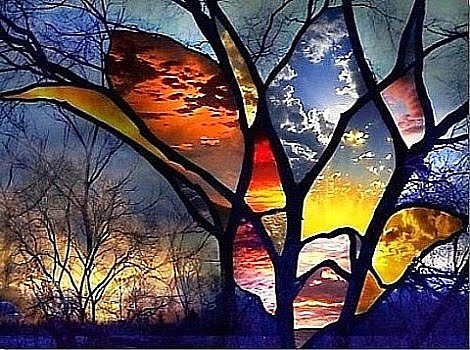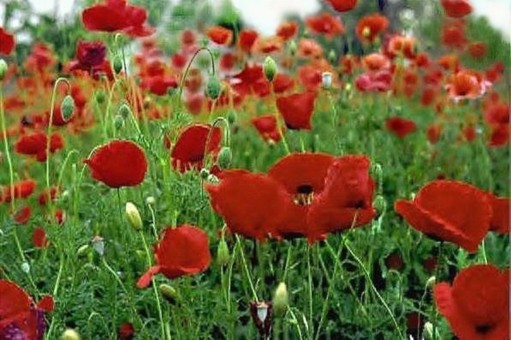“Give me a child until he is seven and I will give you the
man.”
This
Jesuit motto is the mantra of a television series in thee UK that has filmed a group of
individuals every seven years from the age of seven in 1964 till the present
day at the age of 56 and it looks likely to continue, which means that we will
eventually face the prospect of the participants dying off one by one as they go into old age, including the producer, Michael Apted, and that’s when questions may well be asked as to whether it ought to go on. Whatever happens then, I do hope it will go on a bit further and accompany the chosen subjects well into their sixties. And if any pass away in the process, I suppose we could be there at their funeral, or at least speak with their friends and family about their lives. Having said that, your humble blogger is no spring chicken and may pop his clogs before any
of the series participants do and not witness any of the attrition that will occur one day. This is real life, not a scripted tv drama.
For
me it has been a fascinating and revealing series so far, witnessing every seven years both
the visible physical changes in the subjects and the no-less obvious and
natural changes in their mental development, but also, and just as fascinating,
the changes taking place in the world around them. We start from a first black-and-white episode
showing a truly suffocating dark and dismal environment and progress in
subsequent episodes to a world of greater colour and light and growing optimism. The series develops in a very natural way
as we follow the participants through childhood, adolescence, adulthood and on to what may now be termed their later years. Admittedly it is all in the form of brief snapshots, but it is nevertheless a potent window into the growing-up process, evolving society and a rapidly changing world.
Although the
programme focused on a specific group of children, it is in a way about each
and every one of us. Though the course of our own lives may differ somewhat from
that of those individuals, the process is the same and the successive stages are
the same and we see ourselves in those children as they pass through the
various ages and stages of man. We have many common points with them and we
recognise many of their experiences in our own. We witness their joys and
sorrows, their successes and failures, their triumphs and defeats. The older we
are, the more nostalgic we are about the early years, the years of our childhood,
our youth, and the younger we are, the more we are intrigued to see how life is
faced at an older age. We look back or we look forward and in both cases their
life is a reflection of ours and ours of theirs.
“Give
me a child until he is seven and I will give you the man.” But is this really
so? It sounds good, has a good mystical ring to it, but if the series
demonstrates one thing it is that this is so often not the case after all.
Several of the participants have gone on to lead lives that we could not have
imagined from seeing them at age seven. Some have had better and some worse lives as adults than we might have imagined. And some have been a real revelation. But all have been a
slice of human lives at various stages and moments, divided into 7-year intervals, and I for one have been spurred to think long and hard about life and our journey from the cradle to the grave. We can do nothing about the one or the other, but we may do a great deal about the in-between. And that is what really matters in the end.
So
now the seven-year-old children of 1964 are the fifty-six-year-old adults of 2012
and, if we are fortunate enough, we may hope to revisit them in another seven years’
time when they are sixty-three. By definition it is a process that cannot go on
forever and it is already nearer to its end than its beginning,
given the average human age-span, but so far it has been an intriguing and moving
journey and for the moment it continues. I personally have learnt a lot from it in ways which are more to do with attitude, perception, approach and acceptance than any concrete practical skill or aptitude or technique. Being older than them by a few years, I have seen myself in them and recognised the grey grim world they were born into.
Seven
Up has, as I've said, taken us through a large part of the cycle of life in seven-year leaps and
by so doing it has set before us the reality or realities of life and an ever-changing world. It has shown us the hopes, dreams and aspirations of a representative group of
individuals, and the many things that life throws at us all along the way. There is
joy and sorrow there, happiness and sadness, triumph and tragedy, goodness and
badness, and we can all identify with that and recognise ourselves in them and the scheme of things. If
I am still around to see the next episode in 2019, I will do so… if only to say: "Their journey through life has reflected my own and the challenges they have encountered along the way have also been my own." The differences are only really in the detail.
“Give
me a child until he is seven and I will give you the man.” I’m not so sure about this, but whatever the truth of it, the
contrast between us as children and us as adults, as poignantly witnessed in
the Seven-Up series, is such a huge one that it is difficult to believe that
we are the same individuals. And therein lies the fascination in the series. We
see the child become the man, mentally and physically, and we are transfixed by
the transformation. We note with astonishment the power of the years to
transform us into something wholly different from what we were when we came into
the world. The inexorable passage from cradle to grave - a journey that we all must
make, in a life that may be short or long, happy or sad - is a truly
gripping experience and must be the core reason why this documentary series
has been so successful. It is I suppose a concrete witnessing of the flame of
life that eventually and ineluctably weakens, falters and goes out and we thus pass
into history. Sic transit gloria vitae.



.jpg)
.jpg)

.jpg)